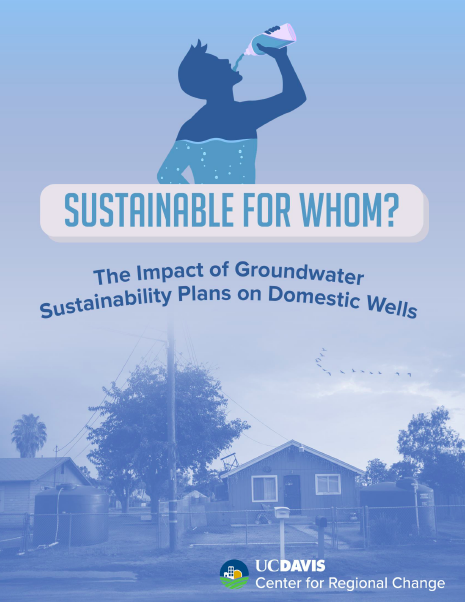Sustainable for Whom? The Impact of Groundwater Sustainability Plans on Domestic Wells

Sustainable for Whom? The Impact of Groundwater Sustainability Plans on Domestic Wells
Overview
Studies estimate that 1.5 to 2.5 million Californians rely on domestic wells to meet their household water needs, but because domestic wells are often shallow, they are often sensitive to changes in groundwater levels. Thus sustainable groundwater management has an important role to play in safeguarding the health and safety of Californians and the achievement of the state’s recognized human right to water.
This report analyzes 41 groundwater sustainability plans in 19 critical priority water subbasins in California to assess monitoring network coverage and the vulnerability of domestic wells to minimum water thresholds, which indicate the lowest groundwater level considered sustainable. The report finds that at least 1,000 to 6,000 wells are at risk of failure in critical priority water basins under proposed minimum water thresholds, and includes recommendations to achieve sustainable groundwater management in California compatible with the state’s efforts to achieve the human right to water.
The report was produced by the Center for Regional Change at the University of California, Davis.

